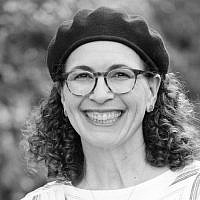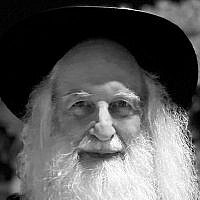The Promise
Ah…to be young and fearless. Remember being 17, with your whole world ahead of you? Careless…wild…free of responsibility other than waking up, going to school, helping with house chores, and cleaning your room? The most important thing in the universe was your friends. They were your confidants. They knew your dreams and your fears. They could hold your secrets for an eternity. They cried with you and laughed with you all at once…and helped you through the various ups and downs of teenage drama and trauma.
I had learned so much from my friends. I learned that we all hated the Top ’40s music, yet loved Indi-pop and the New Wave of the ’90s. I learned how to actively listen to my friends tales of teen angst, love interests, and family drama. I also learned how to dream.
At 17, we were all taking the SATs, and eagerly anticipating our options for college or university. The opportunities ahead were boundless, and we were like ping-pong balls of energy eagerly being hit into a board, hoping that we would gain point by being accepted to the top choices we had on our lists. Of course, being of the Jewish faith, some of us opted for Jewish colleges and universities such as Yeshiva University, Touro, Brandeis or JTS. Others were “on the fence”, and applied to both Jewish institutions, and standard State Schools, City Universities, or Ivy League institutions.
The Ivy League Universities include Brown, Dartmouth, Columbia, Cornell, UPenn, Harvard, Yale, and Princeton. These schools made parents “kvell” with pride, when a child got into these institutions of learning. The caliber was that of another level, one in which a child would be presented with views that were cutting edge. Students would be taught to be critical thinkers who could debate any topic within the constructs of the beloved Socratic Method. After acquiring a degree at these institutions, your options were golden. It was like the Willy Wonka “Golden Ticket” to a life of new hopes, new dreams, and new opportunities. Who would not want such an option?
Of course, I wanted “in”, and while my grades in High School were good enough, my extracurricular activities were on-par, and more, but my SAT marks were shy of getting into these stellar institutions. In retrospect, I realize that I probably had undiagnosed ADD at the time. Taking long tests was torture for me. I would lose focus, and then panic about the time requirements. Those little black circles on the page would begin to swim before my eyes, and I would feel like bolting. I would finish the exam, knowing that I did not fare well, and I feared what would be the result of my SAT demise.
Despite it all, I applied to a couple of Ivy League schools, several Jewish universities, and I decided to apply to Barnard College, the Women’s college affiliate of Columbia University. When I got into Barnard, I thought I had hit the jackpot. It was the best of both worlds…small college feel, but access to the Columbia University campus and all it had to offer.
At Barnard, I majored in English, and minored in Education. I loved every class. And, I also had the opportunity to take interesting and challenging classes both at Barnard and Columbia, such as: The History of Dinosaurs, Fencing I and II, Calculus, The Age of Samuel Johnson, Psychology, Music History, French, Writing and more. I was privy to the CORE concept, that students should have a well-balanced core of education that covers English, Math, Science, Art, and Sport in addition the the Major and Minor chosen by the individual student. I loved every minute of taking classes both at campuses. The world was my oyster, and I was eager to find the pearl in every opportunity.
I have remained friends with my college roommates and friends for the past 29 years. We have all weathered many storms since then….marriages, births of children, divorces, career choices, career shifts, and becoming grandparents. But, through it all, nothing has been more upsetting than opening the news daily to see our hallowed Columbia University campus become a news item that will not relent.
The current climate of university and college campus students to take upon the cause of Hamas and Palestine has been grueling to watch. In horror, I see students calling for the Intifada, telling Jews to return to Poland, and calling for genocide. And the tears keep flowing, without abandon.
Do these young people understand what they are chanting? Have they ever risen to go to work, and wondered if their daily morning bus may be bombed by an Intifada terrorist? Have they experienced the pain of their small kibbutz being infiltrated by terrorists who raped, killed, pillaged, and kidnapped with malice that was unprecedented since the Holocaust? Have they seen their sons don their uniform, give a quick hug, and run out the door to base after being called up for duty on a random October 7th? Have these students been bombarded by bombs for years, running to bomb shelters at school, at work, and at home at all hours of the day and night?
This is the daily life of an Israeli citizen. The violence in our midst is the result of Hamas and Hezbollah vitriol and hate that has been fed to their children like hummus and shawarma. Unfortunately, it cannot be solved by random American kids and adults “taking up the cause” and disrupting finals week, studying, and graduation ceremonies. Nor, can it be solved by sequestering in Hamilton Hall at Columbia University and taking several maintenance workers hostage.
I honestly do not know the answer. For me, the tears keep falling throughout the day. I am a broken Barnard College (‘95) alumna. Seeing these bright souls fighting a cause that is so much bigger than they know is too much to bear. My heart is heavy and sad as I think what tremendous minds are being wasted by chanting epithets and slurs. These are the best and brightest people in the country who are disillusioned by some ideal that they do not understand.
Back in college in the ’90s we did not have Spotify, JBL boom mikes, home karaoke machines, and the like. We had a boom-box, and a tape mix. One of my faves was a tape with the Promise on it. I would open my window, invite a couple of friends, and we would sing (or shout along) until someone in the Quad would tell us to keep it down because she was studying.
The Promise, by When In Rome, was a New Wave song written in 1987 about friendship and love unrequited…
If you need a friend
Don’t look to a stranger
You know in the end
I’ll always be there
And when you’re in doubt
And when you’re in danger
Take a look all around
And I’ll be there
I’m sorry but I’m just thinking of the right words to say
(I promise you)
I know they don’t sound the way I planned them to be
(I promise you)
But if you wait around a while I’ll make you fall for me
(I promise you)
I promise you
I promise you, I will.
(When In Rome, 1987, Clive Farrington, Michael Floreale, Andrew Mann),
For some reason, this song has been on repeat in my head, and on my car radio for the past few weeks. I cannot let it go. It is as if it is a call for us to take a look around, and see the friends that we have. We must see the good intentions of each soul. We sometimes do not have the right words to express ourselves, but we must come the realization that discussion, and active listening are the key to any substantial relationship. Lack of communication will only cause strife and resistance.
In the Jewish faith, a promise is not taken lightly. If a person promises something, it is considered an oath that is a solid commitment to another person. If the oath cannot be met, there are consequential actions of actually remitting the oath before a quorum of three individuals that can affirm that the party who took the promise cannot fulfill it, and must nullify it.
The Promise is something bigger than its name. It is a call for us to promise to commit to opening our hearts and achieving greatness by joining a cause that is greater than our personal angst and anger. Perhaps it is time that we promise to heed this call.
I promise you, I will.



